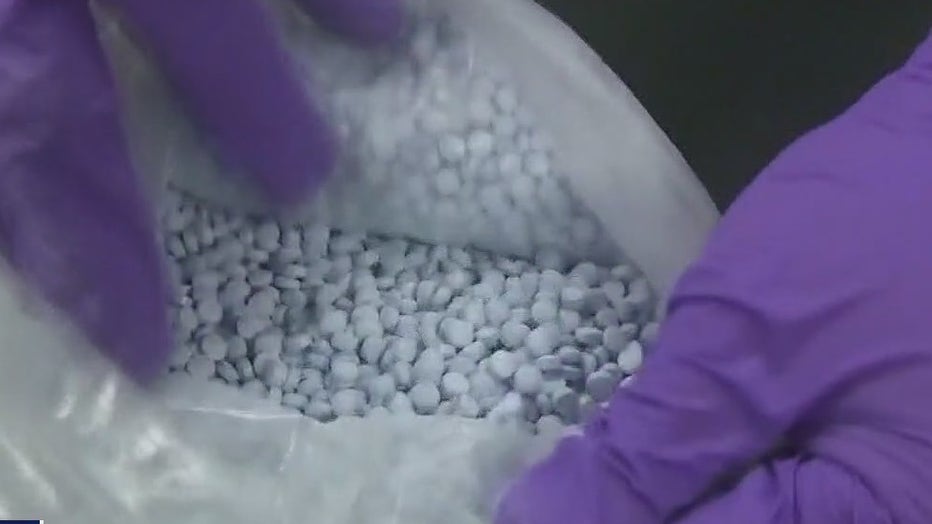Waukesha County substance abuse prevention; new efforts

Waukesha County substance abuse prevention
This National Prevention Week, Waukesha County leaders announced Tuesday, May 10 new efforts to prevent substance abuse in the community.
WAUKESHA COUNTY, Wis. - Waukesha County leaders announced on Tuesday, May 10 new efforts to prevent substance abuse in the community – part of National Prevention Week.
According to a news release, the Waukesha County Department of Health and Human Services (HHS) has allocated additional grant funds to schools and the community to enhance primary substance abuse prevention. The Waukesha County Sheriff’s Department will implement a pilot program that deploys mental health professionals to crisis calls in real-time. Also, peer support will increase at the community level.
"Prescription drug misuse, especially of opioids, is devastating to our community," Waukesha County Executive Paul Farrow said in the release. "Prevention is an investment in the lives and safety of all our residents, so the County is using multiple strategies to stop substance abuse before it can start."
SIGN UP TODAY: Get daily headlines, breaking news emails from FOX6 News
Prevention programs in schools
Waukesha County will offer approximately $200,000 in new Substance Abuse Block Grant (SABG) funds to expand prevention efforts in schools and the community. The grants can fund six primary prevention strategies: information dissemination, education, alternative activities, problem identification and referral, community-based process, and environmental. Schools and licensed prevention agencies each have the opportunity to apply.

Waukesha County substance abuse presser conference
Waukesha County leaders announce new efforts to prevent substance abuse in the community.
Waukesha County has partnered with Addiction Resource Council, Inc. to offer free technical assistance to develop, implement and document programming to schools applying for grants. Awardees may collaborate with other licensed Substance Use Prevention Agencies for activities not provided by schools.
Mental Health Professional program
The Waukesha County Sheriff’s Department, in partnership with HHS, will implement the embedded Mental Health Professional program, which began as a pilot program in November 2021. The sheriff’s department has experienced improved response to mental health and crisis calls since the pilot program began. It will be fully implemented at the end of June.
"This program accommodates the changing needs of the community," Waukesha County Sheriff Eric Severson said in the release. "Mental health-related issues continue to rise, and this program protects both the safety of our deputies and those in crisis, while maximizing our deputies’ time for public safety and criminal issues."
FREE DOWNLOAD: Get breaking news alerts in the FOX6 News app for iOS or Android.
Since the sheriff's department became the first and only Waukesha County agency to embed a mental health professional in its office:
- Average response time for the mental health professional to arrive on scene to meet with a person experiencing a mental health crisis is 22.1 minutes, compared to 45 minutes for similar responses with non-embedded mental health professionals.
- The embedded mental health professional clears deputies on 38% of calls for service because the situation is not imminently dangerous and does not require law enforcement's presence.
In 2018, Waukesha County sheriff’s deputies responded to 236 calls for service related to a mental health and/or substance use crisis that required the assistance of an HHS crisis clinician. Such calls for service have increased, with 691 calls occurring in 2020 and almost 800 calls in 2021.
Overdose prevention
Waukesha County uses a collective impact approach through multiple programs to fight the opioid crisis, including participation in National Prescription Drug Take Back Day, the Wisconsin Injection Drug Use Prevention Project, and its Drug Treatment Court.
- In 2022, Waukesha County will utilize grants to launch medicated-assisted therapy awareness campaigns to highlight treatment options for individuals in recovery.
- HHS has added an additional full-time peer support specialist to its Outpatient Mental Health and Substance Use Services Clinic Staff.
- The Waukesha County Heroin Task Force’s prevention action team is conducting community presentations to highlight the risks associated with prescription misuse.
- HHS maintains a strong relationship with the AODA Volunteers of Waukesha County, who provide valuable outreach, education and support services to individuals in recovery, or who are considering abstinence from drugs or alcohol.
- The Women’s Health and Recovery Project (WHARP), coordinated by Waukesha County HHS, assists women with substance use disorders, and their children, who have complex needs such as housing, employment, mental health and physical health issues, transportation, and childcare.
- Since 2017, more than 291 documented lives have been saved, at least 289 of those were overdoses reversed by Naloxone, as a result of the Waukesha County HHS Naloxone Project.
Waukesha County Drug Take Back Day
On April 30, the Wisconsin Department of Justice (DOJ) coordinated a Prescription Drug Take Back Day initiative throughout the state. Drug Take Back events provide a safe and convenient method for our communities to dispose of unwanted and/or unused medication. They also serve as a mechanism to educate the community about the potential abuse and consequences of improper storage and disposal of prescription medications.
The Wisconsin initiative was part of the Drug Enforcement Administration’s National Drug Take Back Day. The DOJ recently announced that Wisconsin collected an approximate total of 59,840 lbs. during the spring 2022 event.

The Waukesha County Sheriff’s Department teamed up with the DOJ, as well as the cities of Delafield, Muskego, New Berlin, Pewaukee, and Oconomowoc, Villages of Butler, Eagle, Hartland, Menomonee Falls, Mukwonago, Pewaukee, Sussex, North Prairie, Elm Grove, Lannon, and Summit, and towns of Brookfield and Oconomowoc to manage event day collection sites around Waukesha County.
Many of these communities are also supported by permanent drug disposal boxes in their local police departments. The drug take back events provide an opportunity for law enforcement agencies to safely dispose of accumulated, unwanted, and unused prescription drugs collected in these permanent disposal boxes.
Visit the Wisconsin Department of Health Services' website to access additional safe disposal tips and year-round drug collection locations.

